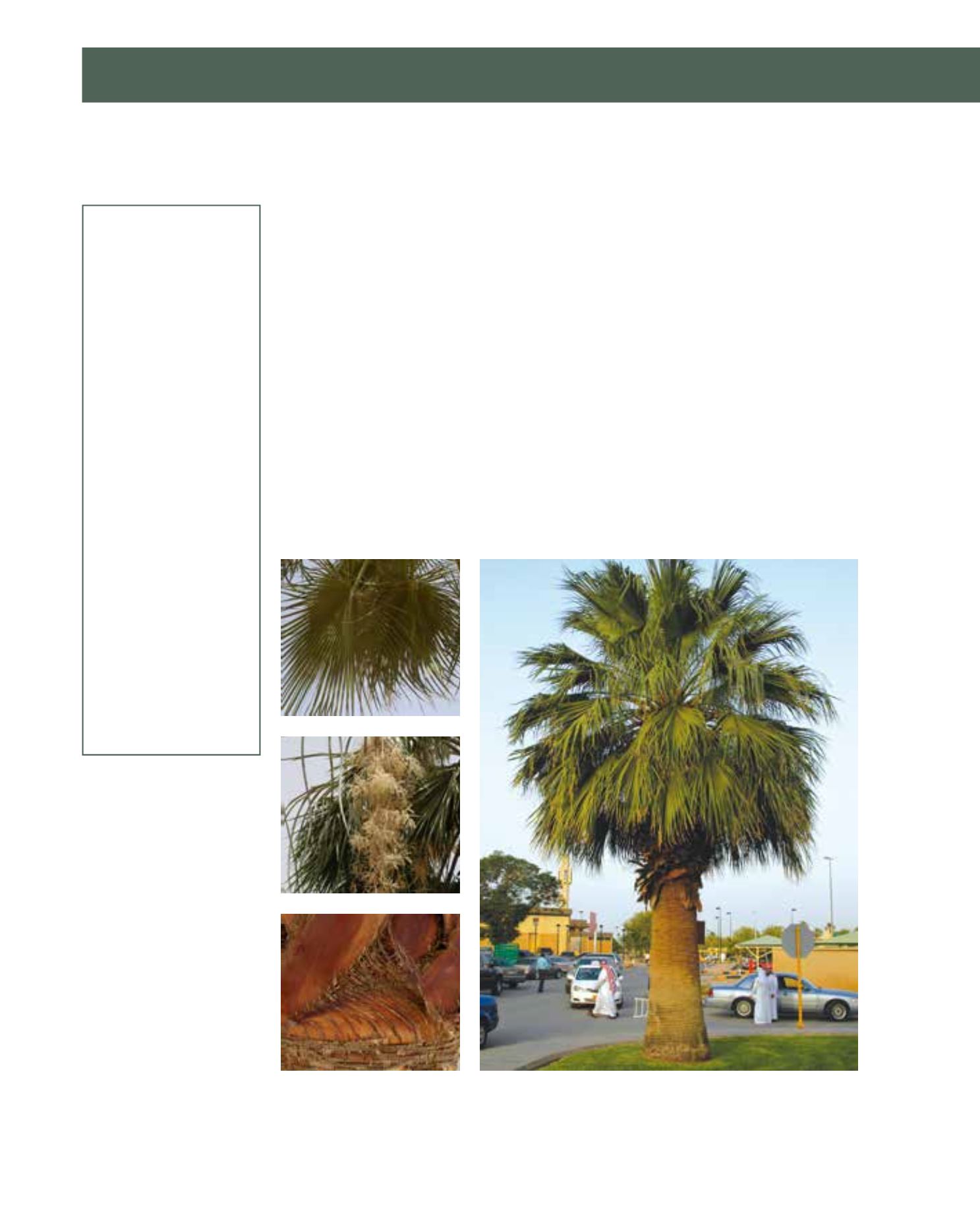

GENERAL
Origin
:
Mediterranean,
sub-tropical,
tropical
Vigour
:
normal growth
rate
Humidity
:
semi-arid, semi-
humid, very
humid
Propagation :
sowing and
pricking out
Maintenance :
low
CONDITIONS
Urban climate :
resistant
Dessication :
vulnerable
Stagnant water :
resistant
Irrigation
:
low, medium
Salinity/ppm :
very high (25000
ppm)
Hardiness
:
-6°C
SHAPE
Type
:
palms
Height
:
15 m-25 m
Spread
:
3 m-5 m
Foliage
:
evergreen
FLOWER
Colour
:
pastel white
Size
:
200 cm
Period
:
March - June
FRUIT
Type of fruit :
drupe
Fruit size
:
0.8 cm
This palm is grown in all frost-free climates for its tough nature and pretty appearance. The
Desert Fan Palm is indigenous to northwest Mexico, western Arizona and California, where it
reaches 25 metres height in favourable conditions. In cultivation, it may not exceed a height of 15
metres, but in any case the width ranges from 3 to 5 metres. It is a very successful fan palm in Ar-
riyadh. Its large leaves consist of a strong petiole that is armed with sharp hooks along the edges,
and a round blade which is folded many times in section. Often, they are divided in sections
exposing fibres in between. Additionally, the tips are brushy and refer to the species’ name filifera,
which means ‘ wearing filaments’. Young leaves always emerge from the crown’s terminus, unfold
and slowly bend down when mature to eventually persist when dry to form an ornamental skirt
which led to its other common name, Petticoat Palm. White flowers appear on stalks that are
often several metres long. When pollinated, they turn into dark-brown, oval fruit. This species
develops a much wider trunk than its relative, Washingtonia robusta. Hybrids may occur both in
the wild and in cultivation. Desert Fan Palms take all types of well-drained soils, even alkaline
and poor conditions. Overwatering may result in rotting which kills the plant. Frost and drought
are tolerated, and the palm thrives in both full sun and semi-shade locations alike. Growth can
be accelerated by frequent watering and all-purpose fertilisers.
311
Washingtonia filifera,
Arecaceae
California Fan Palm,
Desert Fan Palm
















